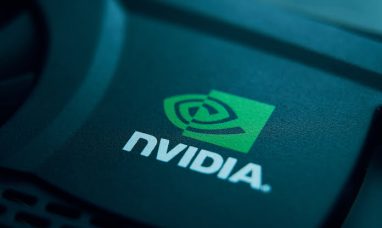Microsoft’s (NASDAQ:MSFT) recent fiscal 2025 Q1 results highlighted impressive adoption rates for its AI-powered Copilot, sparking market interest in the tech giant’s position within the artificial intelligence (AI) landscape. Driven by substantial enterprise and sector-specific integrations, Microsoft’s AI initiatives are increasingly central to its growth strategy. With over 70% of Fortune 500 companies using Microsoft 365 Copilot, daily user numbers have surged, underscoring the technology’s role in boosting Microsoft’s market share.
AI Adoption Accelerates Across Key Segments
Microsoft’s AI focus spans several critical sectors, including healthcare, finance, and developer tools. A recent Forrester study projects that Microsoft’s AI offerings could yield an ROI of 132% to 353% over three years for small and medium businesses. With a comprehensive suite of AI-driven tools, Microsoft is well-positioned to leverage its technology across industries, strengthening its leadership in the competitive global AI market.
The fiscal 2025 revenue outlook for Microsoft is promising, with analysts estimating a growth rate of 13.27% year-over-year. The company’s AI initiatives could play a significant role in meeting these growth targets, especially given the increasing traction of Copilot services in the healthcare sector, where market potential is substantial.
Enterprise Integration and Developer Platform Growth
A standout indicator of Microsoft AI growth has been the rapid adoption of Copilot in enterprise settings. Companies like Vodafone and UBS are investing in Microsoft’s AI-powered tools, citing improved productivity and efficiency. Vodafone’s deployment across 68,000 employees alone has led to reported time savings of approximately three hours per employee each week, illustrating the practical benefits of AI integration.
Microsoft has also made strides within the developer community through GitHub Copilot. Quarter-over-quarter, GitHub Enterprise clients for Copilot have increased by 55%. New features like Copilot Workspace and Autofix expedite software development by automating vulnerability fixes three times faster than traditional methods, demonstrating Microsoft’s commitment to innovation in the developer tools segment.
Sector-Specific Solutions: Healthcare as a Key Growth Driver
Microsoft’s tailored AI solutions have gained significant traction in the healthcare sector. DAX Copilot, for instance, has processed over 1.3 million physician-patient interactions monthly, underscoring the solution’s appeal among healthcare providers. This industry-specific focus not only highlights Microsoft AI growth but also signals the potential for sustained revenue growth in niche markets.
As healthcare organizations continue to digitize, Microsoft’s role in providing secure and efficient AI solutions has become increasingly critical. This approach is echoed across other sectors, where AI integrations help streamline operations and meet industry-specific demands.
Security Investment to Support AI Infrastructure
Microsoft’s Secure Future Initiative, employing 34,000 engineers, illustrates the company’s commitment to safeguarding AI infrastructure. Security remains a core focus, with the integration of Microsoft Defender and Purview into its AI offerings ensuring that security threats are actively mitigated. Although these investments are essential for user confidence, they impact short-term profitability—a factor Microsoft will need to manage as it balances growth with cost control.
Financial Outlook and Valuation Considerations
Microsoft’s AI advancements contribute to the company’s strong financial outlook, yet its current market valuation suggests caution for potential investors. With a forward 12-month price-to-sales (P/S) ratio of 10.78x, Microsoft trades at a premium compared to the software industry average of 7.93x. While this ratio reflects investor optimism, it also suggests that much of Microsoft’s near-term AI growth may already be priced in.
Competitors in the AI market, such as Alphabet Inc. (NASDAQ:GOOGL) and Nvidia Corp. (NASDAQ:NVDA), are investing heavily in similar AI capabilities, heightening the competitive landscape. Microsoft’s ability to maintain a distinct edge will be crucial to justifying its valuation and achieving sustained growth.
Investment Perspective: Is It the Right Time?
For current shareholders, Microsoft’s strong AI adoption metrics suggest long-term holding could be rewarding, particularly as AI applications across sectors grow. However, new investors might consider waiting for more favorable entry points given Microsoft stock‘s high valuation and potential for short-term market volatility.
As Microsoft continues to refine its AI offerings and expand its reach across healthcare, finance, and developer tools, its ongoing investment in security and infrastructure will likely bolster confidence in its long-term growth prospects. Nevertheless, in the current market climate, patient investors may be better positioned to capitalize on future opportunities within Microsoft AI growth initiatives.
Featured Image – Depositphotos









